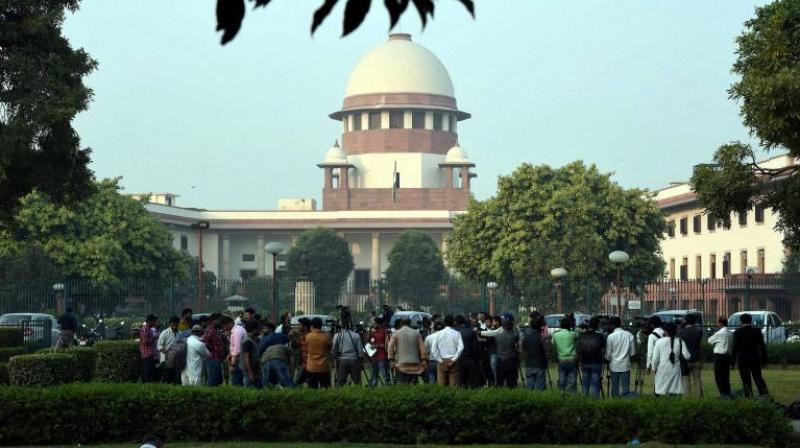Privacy a right or not? 9-judge SC bench to pronounce verdict today
It has been argued that the right to life under Article 21 of the Constitution would include the right to privacy.

New Delhi: A nine-judge Constitution Bench of the Supreme Court will determine on Thursday if there is any fundamental “right to privacy” under the Indian Constitution.
The question of “right to privacy” arose over making the Aadhaar scheme mandatory.
A five-judge Bench of Chief Justice of India (CJI) JS Khehar and Justices J Chelameswar, SA Bobde, DY Chandrachud and S Abdul Nazeer, heard a batch of petitions, challenging the constitutional validity of Aadhaar card. It referred the matter to a nine-judge bench on the question whether “privacy” is a fundamental right or not.
This comes 55 years after the Supreme Court declared that privacy is not a fundamental right for citizens.
The nine-judge bench comprising the CJI Khehar and Justices J Chelameswar, Bobde, RK Agrawal, Rohinton Nariman, AM Sapre, Chandrachud, Sanjay Kishan Kaul and Nazeer, heard the matter for two weeks. It reserved its judgement over the issue on August 2.
The petitioners, including former judge of Karnataka High Court Justice KS Puttaswamy, had contended that the biometric data and iris scan for the issuance of Aadhaar card violated the fundamental right to privacy of the citizens as personal data was not protected, and was vulnerable to exposure and misuse.
It was argued that the right to life under Article 21 of the Constitution would include right to privacy though it was not explicitly stated in the Constitution.
It was also argued that privacy is a broader concept and data sharing is only one aspect of privacy. Privacy is about the freedom of thought, conscience, and individual autonomy and none of the fundamental rights can be exercised without assuming certain sense of privacy. The State is under an affirmative obligation to protect the fundamental rights. Liberty existed prior to constitutional era and the law had merely recognised its existence. Liberty is fundamental to democracy and citizens cannot exist without privacy.
Attorney General KK Venugopal, however, brought to the notice of the court that an eight-judge bench in 1954 and a six-judge bench in 1962 had categorically ruled that “right to privacy” was not a fundamental right.
He also said such a right had not been expressly provided in the Constitution, though under the British Common Law, right to privacy was a fundamental right. He maintained that the right to privacy is not a fundamental right to be claimed either under Article 21 (right to life) or 14 (right to equality) or 19 (freedom of speech and expression, etc).
The court had reacted sharply to the AG’s submissions and observed, “In a Republic founded on a written Constitution in India, it is difficult to accept there is no fundamental right to privacy, whereas the same is available in Common Law, an unwritten Constitution. There are a lot of judgments, saying privacy is a fundamental right, we cannot ignore them. We have to give serious thought to this question.”

